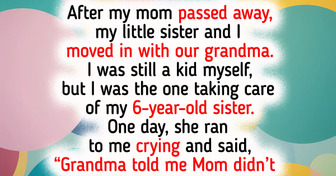Number one... you're allowed to leave anything to whomever you want to. It's yours. I cannot stand reading about these family members who are so bold as to become angry AT the person who's earned the money AND IS STILL ALIVE mind you! No shame at all. Disgusting
My Husband and Stepchildren Tried to Take My Money, I Turned the Tables on Them in My Will
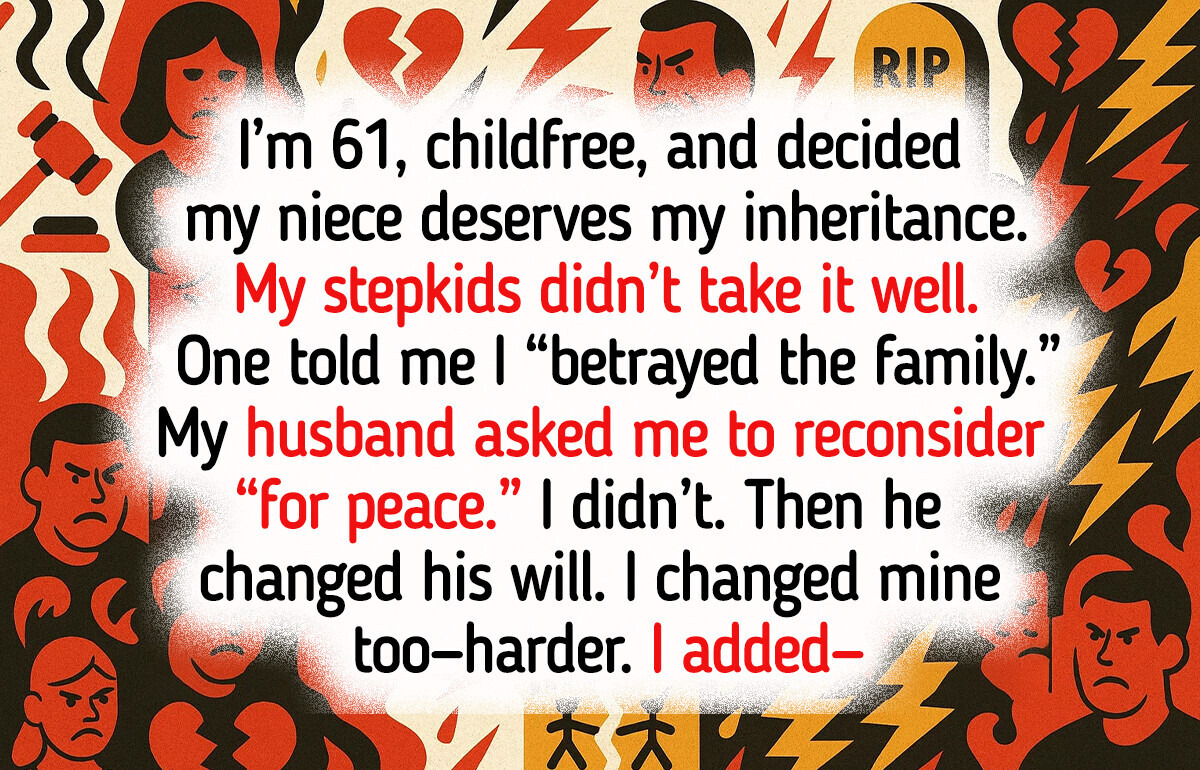
We recently received a letter from a reader that proves family drama can be more shocking than anything on TV. It all started with a simple decision: who to leave her inheritance to. What she thought was a private choice turned into a full-blown family feud with her furious stepchildren—and an unforgettable plot twist that left her husband stunned. Here is her story.
Here’s her letter.

"I’m 61, married for the second time, no kids of my own by choice. My husband has two adult children from his first marriage—29 and 32. We’re civil. I’ve been around 15 years, but I never played mom. They didn’t want that, and I didn’t force it.
Recently, I updated my will. I left the majority of my estate to my niece—my late sister’s daughter. She’s 24, checks in weekly, remembers my birthday, and once flew cross-country just to help me after surgery. She feels like mine.
My stepkids found out—not from me, but because my husband mentioned it at dinner without thinking. And let me tell you, the fallout was immediate.
“You’re cutting us out?”
“You’ve been in our lives for over a decade!”
“You’re punishing us for not being close?”
No. I’m just not rewarding people who kept me at arm’s length for 15 years.
It’s not like I left them nothing. They’re each getting a set amount. But I won’t be guilted into splitting my life’s work with people who only remember I exist at Christmas.
My husband tried to stay neutral, but I could see it bothered him. Later that night, he asked me quietly if I’d consider “adjusting things for the sake of harmony.”
I said no. And that’s when he surprised me. He said, “Then I need to do the same.”
He changed his will the next week—to leave everything to his kids. It stung. I won’t lie.
But here’s the spicy part: I went back to my lawyer and added one line to mine—"Any inheritance received by [my niece] is to be protected from claims by surviving spouses."
If this turns into a fight after I’m gone, they’ll lose. Twice."
Thank you for your letter!
The Silent Battle of “Mine vs. Yours”

The biggest challenge often lies in the emotional dynamics between biological children and stepchildren. Without clear planning, biological children might feel entitled to more, while stepchildren can feel forgotten or overlooked. This is especially true when there are children from different marriages, which adds another layer of complexity to the family dynamics.
For example, a surviving spouse who inherits everything could choose to leave it all to their own biological children, completely cutting out the children of their deceased partner. This kind of messy situation is exactly what can happen without careful estate planning, leading to devastating family disputes.
How to Protect Your Wishes and Prevent a Family Feud.

Fortunately, you have powerful tools to avoid this kind of heartbreaking drama.
Create Trusts: Trusts are a great way to set aside specific assets for each child—both biological and stepchildren. They ensure everyone gets a fair share and that assets are distributed according to your wishes, not a family court’s decision.
Update Beneficiary Designations: This is a crucial step that many people forget. Things like life insurance policies and retirement accounts have beneficiary designations that can override a will. Be sure to update these, especially after a remarriage, so a former spouse doesn’t accidentally inherit your assets.
Have Legal Documents: Wills are the cornerstone of any estate plan, but don’t stop there. Prenuptial or postnuptial agreements can also clarify asset ownership from the start, ensuring both your children and stepchildren are treated fairly.
The Most Important Tool: Communication
Ultimately, the most powerful tool you have is communication. Having open, honest discussions about your inheritance intentions with your spouse and all the children involved can prevent misunderstandings and conflict before they even start.
Estate planning for a blended family can feel overwhelming, but taking the time to talk and plan can ensure your love story doesn’t become a legal nightmare after you’re gone.
Perhaps the hardest part of navigating a family is that “fair” doesn’t always mean “equal,” and the only balance you can truly control is your own.
I Refuse to Support My Aging Parents—Because I Don’t Owe Them Anything
Comments
You already had left everything to your nieces and nephews, your husband wasn't getting it anyway. Except for things that are community property say like the house if it's in both names or joint bank accounts he wouldn't have had access or right to it to start with. So taking him out of your will wasn't really the flex that you thought it was. You can't leave things that aren't 100% yours to anybody else. In the end all you did was secure that you get nothing from him. He was already getting nothing from you.
Related Reads
My Sister Wants Me to Share My Inheritance, but I Don’t Think She Deserves It
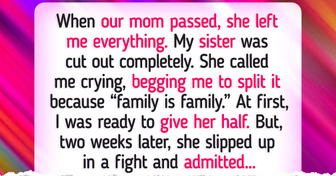
My Friend Used Me Like an ATM—Until I Finally Gave Her a Lesson She Won’t Forget
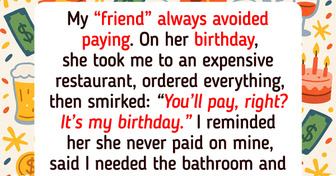
10 Stories That Remind Us to Keep Kindness Alive When Life Feels Unfair

I Refused to Knit My Coworker a Free Blanket, and Now HR Is Involved
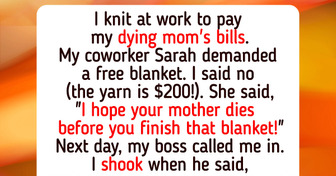
13 Stories of Quiet Kindness That Show Superhuman Strength in Ordinary People

16 Moments That Show Kindness Is the Quiet Courage the World Needs
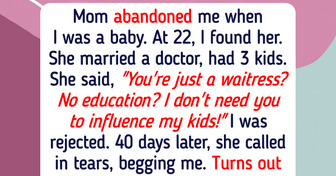
20+ People Who Prove Outsmarting Life Is an Art Form

20+ Stories That Prove Having a Supportive Family Is the Best Safety Net in the World
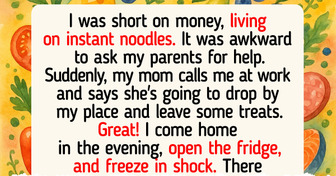
13 Teachers Who Didn’t Just Teach a Subject, They Rescued a Soul

My Neighbor’s Dog Poops in My Yard, but Things Escalated Faster Than I Expected

I Refuse to Cook Vegan Meals for My Stepson—And It Turned Into a Nightmare
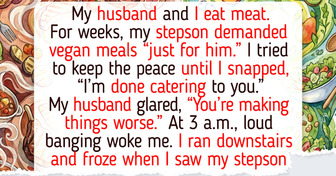
10 Stories That Prove Kindness Is the Backbone of Humanity
